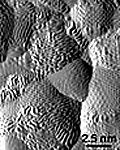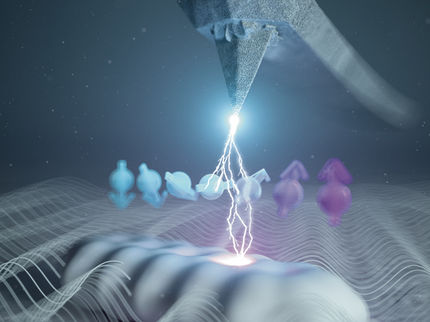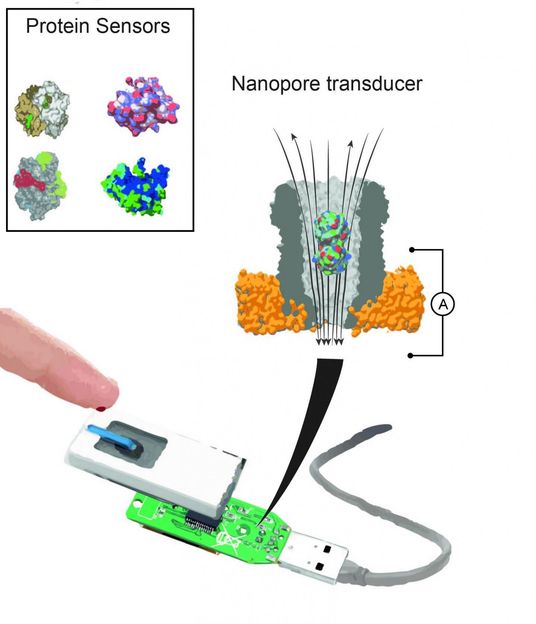Electrified Diamonds: Basel Physicists on the Trail of Quantum Information
With the help of tiny diamond Crystals, physicists at the University of Basel have discovered new possibilities of quantum information: The scientists discovered at specific circumstances electric currents that made it possible to identify defects in the carbon lattice of single diamonds measuring only a few nanometers. The results have been published online in the magazine «Nano-Letters».

Scanning tunneling microscopy image showing the surface structure of nanodiamonds.
University of Basel
The team from the University of Basel and the French German Research Institute St. Louis (ISL) investigated diamond crystals of the size of only five nanometers (five millionths millimeter) using scanning tunneling microscopy and atomic force microscopy. The physicists then identified the atomic structure of the surface and observed crystalline, hexagonal carbon facets as well as graphitic reconstructions. In doing so, they discovered extra currents at specific voltages when the crystals were illuminated by green light.
These extra currents are related to the presence of defects in the carbon lattice of diamonds, so called Nitrogen-vacancy centers (NV-centers) that are optically active. These centers are promising candidates for future applications in quantum information processing systems, spin-magnetometry sensors or single photon sources. Their identification in the range of less than ten nanometers would have been very difficult with conventional methods, which is why the scientists applied a combination of different methods.
«With this study, we are able to show that it is possible to prove, with high resolution, the presence of optical centers in single nanodiamonds», says Prof. Ernst Meyer of the Department of Physics at the University of Basel. In the future, NV-centers could be used in quantum computers that work much more efficiently than conventional computers.
Original publication
Most read news
Other news from the department science

Get the analytics and lab tech industry in your inbox
By submitting this form you agree that LUMITOS AG will send you the newsletter(s) selected above by email. Your data will not be passed on to third parties. Your data will be stored and processed in accordance with our data protection regulations. LUMITOS may contact you by email for the purpose of advertising or market and opinion surveys. You can revoke your consent at any time without giving reasons to LUMITOS AG, Ernst-Augustin-Str. 2, 12489 Berlin, Germany or by e-mail at revoke@lumitos.com with effect for the future. In addition, each email contains a link to unsubscribe from the corresponding newsletter.























































